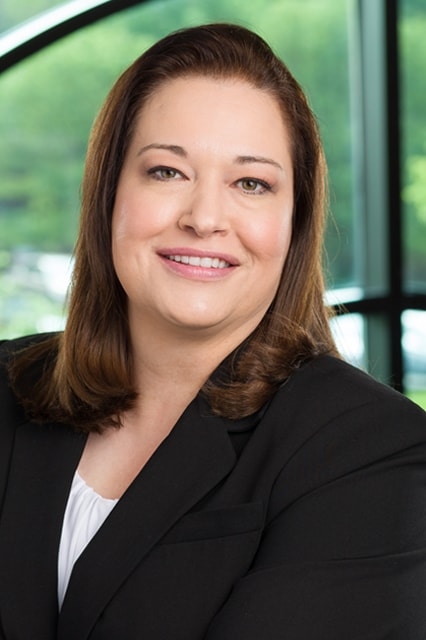Expansion of Access to Small Business Administration Loans and Forgiveness of Loans: Is The CARES Act Too Good to be True?
Last updated March 28, 2020
On March 27, 2020 President Trump signed into law the Coronavirus Aid, Relief and Economic Security Act (the “CARES Act”), a $2 trillion stimulus package intended to help individuals and businesses affected by COVID-19. The CARES Act creates the Paycheck Protection Program, a new Small Business Administration (“SBA”) loan program, and increases access for businesses to the SBA’s Economic Injury Disaster Loan (“EIDL”) program. The Paycheck Protection Program and the EIDL program are, for the most part, mutually exclusive. Accordingly, each business will have to determine which program is best suited for its specific needs.
Paycheck Protection Program
Loan Details
The CARES Act appropriates $349 billion to the SBA to guarantee forgivable, unsecured loans to small businesses, nonprofits and certain other businesses. The loans are available from the SBA until June 30, 2020. The maximum amount of the loan is the lesser of (1) $10,000,000 and (2) 2.5 times the business’ monthly average of payroll costs in the one-year prior to the loan, plus the outstanding amount of any EIDL granted from January 31, 2020 through the date EIDLs become eligible for refinance under the Paycheck Protection Program. The loans extended under the Paycheck Protection Program are non-recourse (unless the loan is used for an unauthorized purpose), and the borrowing business’ principals are not required to personally guarantee the loan. The loans bear a maximum interest rate of 4% and, to the extent the loan is not forgiven, the maximum maturity is 10 years from the date the borrower applies for loan forgiveness. The CARES Act requires SBA lenders to accept a borrowing business’ request to defer full payment on the loan for between six months and one year.
In addition to authorized uses for other SBA loans, loans extended under the Paycheck Protection Program can be used for the following purposes:
-
Payroll costs (including costs such as, salaries, wages, tips, retirement benefits, group health insurance, payment of state and local payroll tax and payment for vacation, sick and family leave, but excluding, among other things, payments to employees in excess of an annual salary of $100,000 as prorated for the period from February 15, 2020 through June 30, 2020);
-
Costs to continue group health care benefits;
-
Employee salaries, commissions and other compensation;
-
Payment of interest on any mortgage obligation;
-
Payment of rent obligations;
-
Payment of utilities; and
-
Payment of interest on debt incurred before February 15, 2020.
Eligibility
In addition to “small business concerns” traditionally eligible for SBA loans, businesses, nonprofits and certain other organizations can receive loans under the Paycheck Protection Program if they have 500 or fewer employees (including full-time, part-time and other employees), or satisfy the size standard established by the SBA for the industry (based upon NAICS code) in which the business operates, if applicable. In addition, sole proprietors and independent contractors are eligible to receive Paycheck Protection Program loans, provided they submit documentation to the SBA to substantiate their eligibility. Businesses in the accommodations and food service industry are eligible if they do not employ more than 500 employees per physical location. The affiliation regulations, which generally require aggregation of affiliates to determine eligibility, are also waived for businesses in the accommodations and food service industry and certain franchises designated by the SBA. Additionally, the requirement that businesses be unable to obtain credit elsewhere to be eligible for an SBA loan is waived for loans made under the Paycheck Protection Program.
Lenders extending loans under this program will only consider the following to determine eligibility: (1) whether the business has been in operation since February 15, 2020 and (2) whether the business had employees for whom it paid salaries and payroll taxes or paid independent contractors as reported on 1099-MISC. Businesses applying for loans are also required to make a good faith certification that (1) the current uncertain economic conditions make the loan necessary; (2) the funds will be used to retain workers and maintain payroll or make mortgage payments, lease payments and utility payments; and (3) they have not received, and have not applied for a loan from the SBA for the same purpose and for duplicative amounts. To the extent a business has received an EIDL since January 31, 2020, the business can refinance that loan under the Paycheck Protection Program.
Loan Forgiveness
Loans granted under the Paycheck Protection Program are eligible for forgiveness, without federal income tax consequences. The maximum allowable amount of forgiveness is equal to the total the borrowing business expends during the 8-week period after origination of the loan for the following expenses:
-
Payroll costs (as defined above);
-
Payments of interest under a covered mortgage obligation incurred before February 15, 2020;
-
Payments on rent obligations under a lease agreement in force before February 15, 2020; and
-
Covered utility payments (including electricity, gas, water, transportation, telephone, or internet) for which service began before February 15, 2020.
The loan forgiveness, however, is subject to reduction if the business does not maintain the monthly average number of full-time employees during the eight-week period after origination of the loan as it maintained either from February 15, 2019 through June 30, 2019, or from January 1, 2020 through February 29, 2020. Additionally, there is a reduction for any diminution in an employee’s pay in excess of 25% of such employee’s total salary during the most recent full quarter. However, this reduction only applies to employees who did not, in any pay period, receive wages or salary at an annualized rate in excess of $100,000. Importantly, a reduction in the number of full-time employees, or a diminution in an employee’s wages between February 15, 2020 and April 26, 2020 (thirty days following enactment of the CARES Act) will not reduce the amount of loan forgiveness if the business rehires such employees and/or restores their wages before June 30, 2020.
Application Process
Loans under the Paycheck Protection Program will be administered by SBA-approved lenders. The CARES Act authorizes the Administrator of the SBA and the Secretary of the Treasury to permit additional lenders to participate in disbursing loans under the Paycheck Protection Program.
Disaster Loans
The CARES Act also expands access for business to the SBA’s EIDL program, which CSG discussed in a prior alert that can be found here. Similar to the Paycheck Protection Program, EIDLs are now available to businesses with fewer than 500 employees, certain sole proprietorships and independent contractors, nonprofits and other small business concerns. The CARES Act also waives (1) the personal guarantee requirements for EIDL loans of not more than $200,000; (2) the requirement that the business be in operation for one year before the declared disaster, except that the business must have been in operation since January 31, 2020; and (3) the requirement that businesses be unable to obtain credit elsewhere.
Each business applying for an EIDL can request an advance of $10,000 that must be disbursed by the SBA within three days. In addition to any other authorized purpose of an EIDL, the advance can be used to:
-
Provide sick leave to employees unable to work due to COVID-19;
-
Maintain payroll to retain employees;
-
Meet increased costs to obtain materials;
-
Make rent or mortgage payments; and
-
Repay obligations that cannot be met due to revenue losses.
This advance is not required to be repaid, even if the business is ultimately denied an EIDL. However, if the business is subsequently approved for a loan under the Paycheck Protection Program, the advance reduces the forgivable amount of the loan.
If you have any questions about these SBA loan programs, please reach out to your CSG attorney.
For additional information pertaining to the coronavirus outbreak, please visit CSG's COVID-19 Resource Center.
This publication contains general information on recent legal developments and is not intended to provide legal advice for a specific situation or to create an attorney-client relationship. Attorney Advertising. Prior results do not guarantee a similar outcome.


